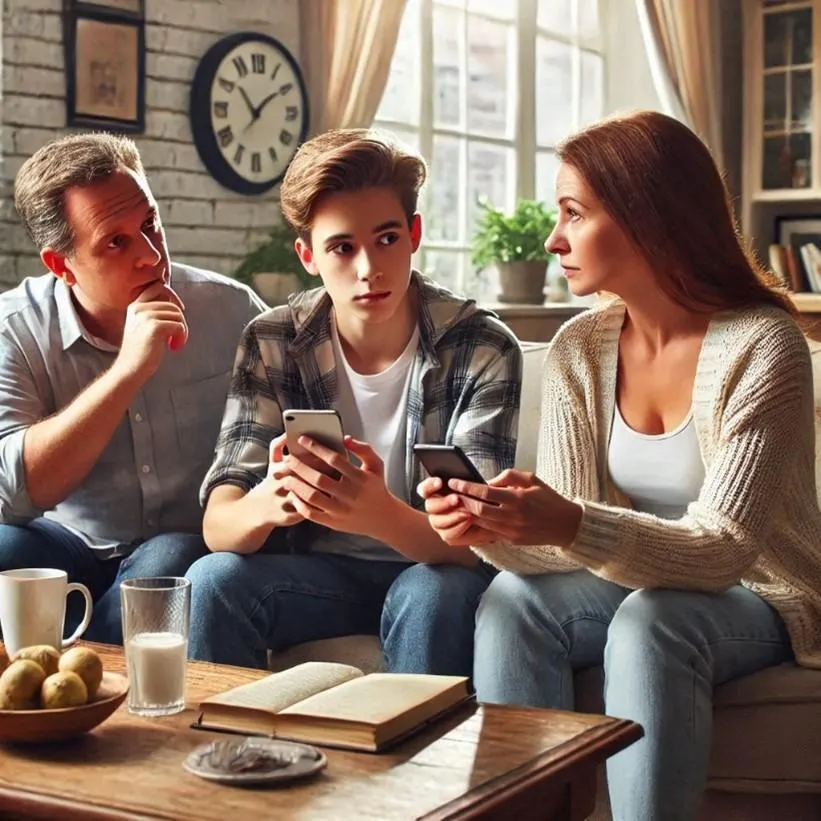
Digital Dating in the Modern Age for Teens
Digital Dating in the Modern Age: Creating Safe Spaces for Teen Relationships
In today's interconnected world, teens navigate relationships differently than any generation before them. With smartphones in nearly every teenager's pocket and social media woven into the fabric of daily life, understanding digital dating has become crucial for creating healthy relationships. At Lafayette House, our prevention education programs work with teens, parents, and educators across Southwest Missouri to foster safer, healthier relationship environments.
Understanding Today's Digital Landscape
The reality of modern teen life is increasingly digital. Research shows that 95% of teens have access to smartphones, with nearly half reporting they're online "almost constantly." This constant connection creates both opportunities and challenges for young relationships. While technology can facilitate meaningful connections, it can also become a tool for control and abuse.
The Role of Family Engagement

One of the most powerful findings from recent research is how family involvement shapes teens' relationship with technology and dating. When families actively engage in conversations about digital life and relationships, teens show remarkably better outcomes. They develop healthier attitudes toward relationships, better understand boundaries, and show more confidence in navigating challenging situations.
Creating Healthy Digital Boundaries
Through our prevention education programs at Lafayette House, we've learned that setting boundaries around technology isn't just about limiting screen time. Instead, focusing on content and context proves more effective.
We encourage families to:
Create open dialogues about online experiences.
Discuss what healthy digital communication looks like.
Share family devices when appropriate.
Talk about privacy and personal information.
Model healthy technology use as parents and caregivers.
Recognizing Warning Signs in the Digital Age
Digital dating abuse can take many forms, and it's important to recognize the signs early. Our prevention specialists work with teens to understand that controlling behaviors like constant messaging, demanding passwords, or monitoring social media accounts aren't signs of love – they're warning signs of abuse.
Building Better Digital Citizens

At Lafayette House, our prevention education programs reach students throughout Southwest Missouri's schools, helping young people understand how to be responsible digital citizens while maintaining healthy relationships. We focus on developing critical thinking skills that help teens:
Understand consent in digital spaces. Recognize manipulation tactics. Know when and how to seek help. Support friends who might be experiencing abuse. Make informed decisions about sharing information online.
The Power of Prevention
Our work shows that early education makes a significant difference. When teens understand the foundations of healthy relationships, they're better equipped to recognize and avoid potentially harmful situations. Through our school-based programs, we create safe spaces for students to ask questions, share concerns, and learn from each other.
Resources for Teens and Families
Lafayette House offers free prevention education services throughout Southwest Missouri. Our programs include:
Interactive workshops for students; Parent education sessions; Teacher training programs; One-on-one support for teens with questions; and, Educational materials and resources.
Taking the Next Step
Whether you're a teen looking for guidance, a parent seeking resources, or an educator wanting to bring prevention programs to your school, Lafayette House is here to help. Our prevention education team works throughout Jasper, Newton, McDonald, Barry, Lawrence, Barton, and Dade counties, bringing these vital programs to communities across Southwest Missouri.
Creating Change Together
Every teen deserves to experience healthy, respectful relationships – both online and offline. By working together, we can create environments where young people feel empowered to make healthy choices about their relationships and digital lives.
Contact our Prevention Education team.
Contact Information:

Crisis Line: 1 (800) 416-1772
Main Office: 1 (417) 782-1772
Main Office Address: 1809 S Connor Ave. Joplin, Missouri 64804
Neosho Office: 417-451-6106
Neosho Office: 118 W. Spring St., Neosho, MO, 64850
Website: https://lafayettehouse.org/
All of our services, including prevention education programs, are provided at no cost to participants. Together, we can build a future where every teen understands and experiences healthy relationships.